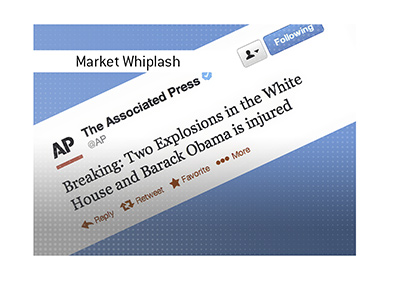Talk of Sequestration Dominating The News Right Now
 What is sequestration?
What is sequestration?Unless you have been living under a rock, you have surely noticed that the term "sequestration" is being thrown around by both the media and politicians.
To understand what the term "sequestration" means, we need to head back to the summer of 2011.
Remember the battle that the Democrats and Republicans waged over the "debt ceiling" in the summer of 2011? That battle produced the "Budget Control Act of 2011", which helped the United States to avoid a potential default.
The "Budget Control Act of 2011" had a number of different components, including an immediate increase of the nation's debt ceiling (by $400 billion) as well as a mechanism to enact two future increases ($500 billion and between $1.2-$1.5 trillion).
$917 billion in spending cuts were directly included as part of the bill. These cuts were included to "pay for" the $900 billion in debt ceiling increases that came shortly after the passing of the bill.
The agreement between the Republicans and Democrats also established the "Joint Select Committee on Deficit Reduction". This "Super committee" was charged with the task of finding $1.5 trillion in cuts over a ten year period. If the "super committee" proved to be unsuccessful (they were, in fact, unsuccessful), a minimum of $1.2 trillion in automatic spending cuts would be enacted. These cuts would apply to both mandatory and discretionary spending between 2013 and 2021. The cuts would not apply to Social Security, Medicaid, civil and military pay and veterans.
These automatic spending cuts were initially scheduled to take hold a few months ago, but the "fiscal cliff" deal that was struck between the Republicans and Democrats pushed the cuts back until March 1st.
--
Now, when you hear the term "sequestration" being used, it is being used in reference to the automatic spending cuts that are just about to take place.
Here is the definition of "sequestration", courtesy of the Congressional Research Service:
"Sequestration” is a process of automatic, largely across-the-board spending reductions under
which budgetary resources are permanently canceled to enforce certain budget policy goals. It
was first authorized by the Balanced Budget and Emergency Deficit Control Act of 1985
(BBEDCA, Title II of P.L. 99-177, commonly known as the Gramm-Rudman-Hollings Act).
and
"In general, sequestration entails the permanent cancellation of budgetary resources by a uniform percentage. Moreover, this uniform percentage reduction is applied to all programs, projects, and activities within a budget account."
--
So, let's say that there is a Department that is scheduled to be impacted by "sequestration".
Let's say that they have an annual budget of $300 million, and let's say that sequestration will result in their program's budget being cut by 10%.
This Department will suddenly have to make do with $30 million less money, so they will obviously be forced to make cuts. Sequestration, as outlined in the Budget Control Act of 2011, is the process of making across-the-board cuts (except to those programs that are specifically exempted) to both mandatory spending (spending that is automatically obligated due to previously enacted laws) and discretionary spending (expenditures that are set by the government on a yearly basis).
Here is a 36-page report from the Committee on Appropriations - Democrats that takes a look at the possible impact of sequestration:
Source: Sequestration Endangers Economy, Jobs, Critical Services and Investments (*.pdf)
Filed under: General Knowledge



